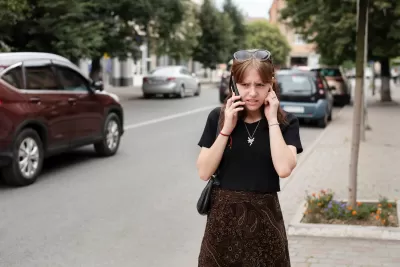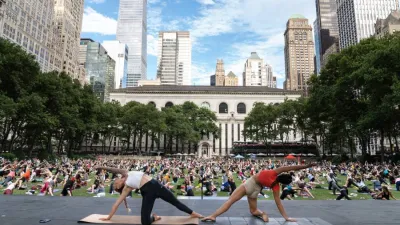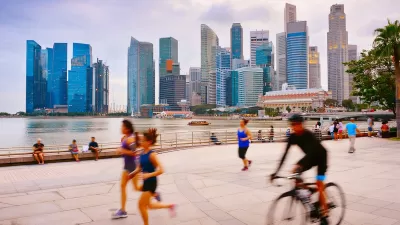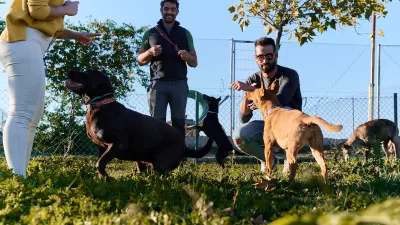Researchers are starting to understand how people with conditions like autism experience cities differently — and how to design for the neurodiverse brain.

“Cities and schools are not typically designed by, or for, people with conditions such as autism,” writes Alexandra Lange in Bloomberg CityLab. Now, architects are working to change that by understanding how neurodivergent people experience cities and designing spaces that address their needs.
A study conducted in a New York City public school surveyed students about their experience and prototyped designs that aim to engage kids in ways that are comfortable for them. The study included an engagement exercise on soundscapes, which had students identify sounds on their playground. The exercise resulted in the installation of three sound “pods” where students can listen to soothing soundscapes and buffer outside noise.
“The result, they hope, will be prototypes designed for typical urban conditions like playgrounds or plazas, made with a broader understanding of what urban comfort can be. This might be noise-buffering. It might be more welcoming signage. It could be plants, maybe some softer seating.” Like other design elements geared toward the needs of specific groups, these interventions would make public spaces more pleasant for all users.
FULL STORY: How to Build a Neurodiverse City

Planetizen Federal Action Tracker
A weekly monitor of how Trump’s orders and actions are impacting planners and planning in America.

Restaurant Patios Were a Pandemic Win — Why Were They so Hard to Keep?
Social distancing requirements and changes in travel patterns prompted cities to pilot new uses for street and sidewalk space. Then it got complicated.

Map: Where Senate Republicans Want to Sell Your Public Lands
For public land advocates, the Senate Republicans’ proposal to sell millions of acres of public land in the West is “the biggest fight of their careers.”

Maui's Vacation Rental Debate Turns Ugly
Verbal attacks, misinformation campaigns and fistfights plague a high-stakes debate to convert thousands of vacation rentals into long-term housing.

San Francisco Suspends Traffic Calming Amidst Record Deaths
Citing “a challenging fiscal landscape,” the city will cease the program on the heels of 42 traffic deaths, including 24 pedestrians.

California Homeless Arrests, Citations Spike After Ruling
An investigation reveals that anti-homeless actions increased up to 500% after Grants Pass v. Johnson — even in cities claiming no policy change.
Urban Design for Planners 1: Software Tools
This six-course series explores essential urban design concepts using open source software and equips planners with the tools they need to participate fully in the urban design process.
Planning for Universal Design
Learn the tools for implementing Universal Design in planning regulations.
Heyer Gruel & Associates PA
JM Goldson LLC
Custer County Colorado
City of Camden Redevelopment Agency
City of Astoria
Transportation Research & Education Center (TREC) at Portland State University
Camden Redevelopment Agency
City of Claremont
Municipality of Princeton (NJ)





























